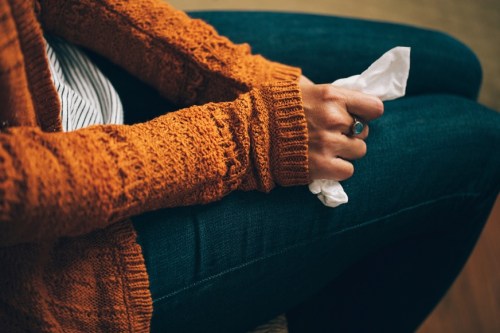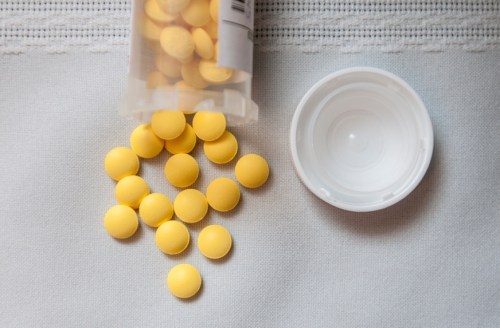When it comes to attacking a sickness head on, antibiotics are often the first course of action. And they truly can work wonders when used in the right way. But one unfortunate side effect is that they wipe out the body’s good bacteria along with the bad, making your gut all out of whack. As if it wasn’t hard enough to keep the microbiome happy, right?
Here, integrative health expert and Superwoman Rx author Taz Bhatia, MD—known to many as Dr. Taz—sets the record straight on when an antibiotic is really, truly needed and when a more holistic treatment will do.
But first, Dr. Bhatia shares a pro tip for helping that antibiotic go down a little easier. “In those moments when you truly need an antibiotic, it’s a good idea to take a probiotic with lactobacillus or bifido three to four hours after you take it, to keep a healthy balance in the gut,” she says. If you already take a probiotic, she recommends changing the time you take it to the designated three to four hours after taking your antibiotic and doubling the dose.
If you are prone to getting yeast infections whenever you take an antibiotic (hey, that’s another place where bacteria balance is very important), Dr. Bhatia suggests using a vaginal probiotic suppository. But even following her probiotic advice mentioned above should help keep things down below balanced.
Now that you know what to do to keep your gut balanced when taking an antibiotic, keep reading to find out when you need to actually take one.

Colds and flus
“Colds and flus are viral and they really just go hard on the immune system,” Dr. Bhatia says. “They don’t typically need medications to help them.” The only exception is when the sickness sticks around—for longer than 10 days. That, she says, is a sign it’s become an infection and will need antibiotics.
“There are so many great, holistic ways to treat colds and flus,” Dr. Bhatia says. First, she says go big with vitamin C intake, aiming for five to 10 grams a day in adults. Studies show that vitamin C isn’t able to prevent or treat the common cold for most of the population, but taking it every day can help some people, so there’s no harm in giving it a shot. Upping your vitamin D intake is another key way to feel better. “Taking at least 2000 IUs of vitamin D through the winter can help and even doubling up on that when you get sick,” Dr. Bhatia says.
She also recommends taking astragalus, which you can buy as a tincture, supplement, or lose herb. “It’s anti-viral and anti-bacterial,” she says. “I’m religious about taking it when I don’t feel good, up to about three or four times a day.”

Strep throat
“This is one where you really do need antibiotics because you want to clear the bacterial load in the throat,” Dr. Bhatia says. “Scientists are starting to see that children and even some adults who are carriers of strep are linked to having neurobehavioral problems, so you really want to attempt to clear strep up right away.”
After finishing the round of antibiotics—and sticking to Dr. Bhatia’s probiotic protocol already mentioned—she recommends being extra good about filling up on pre- and probiotic-rich foods to give your gut the boost it needs to get back on track.

Sinus infections, bronchitis, and ear infections
“These are all cases where antibiotics are definitely over-prescribed,” Dr. Bhatia says. “A lot of times, they clear up on their own.” But if you’re still sick after two weeks, she reiterates that that’s when it’s time to call in the antibiotics for backup.

UTIs
Urinary tract infections are another case where Dr. Bhatia says using an antibiotic is really the only way to go—that is, if you truly have a UTI and test positive for a high colony count. “You don’t want bacteria to fester in the kidneys because that can turn into a more severe infection called pyelonephritis where it travels up the urinary tube and into the bladder and that can sometimes require a hospitalization,” she explains. Uh, point taken.
If you more have a feeling that a UTI might be coming on, Dr. Bhatia suggests taking d-mannose as a protective measure. That just might be enough to keep you in the clear.
Regardless of whether your treatment protocol calls for an antibiotic or not, there’s something Dr. Bhatia recommends to everyone: sleep! “It’s an essential part of recovery,” she says. And hopefully, you’ll wake up feeling at least a little bit better.
For other holistic ways to give your immune system a boost, try this five-pose yoga flow and this foam rolling routine.
Sign Up for Our Daily Newsletter
Get all the latest in wellness, trends, food, fitness, beauty, and more delivered right to your inbox.
Got it, you've been added to our email list.











